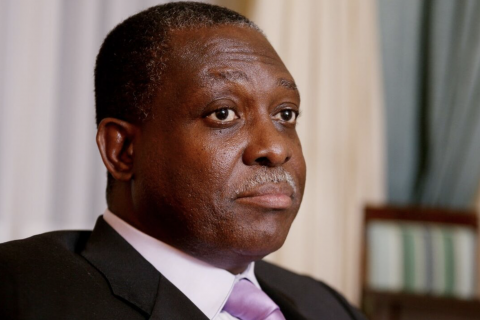"The State has much more property than what is accounted for. The expense was executed, it was not registered, so that sometimes there are vehicles circulating, buildings that were purchased but not registered, it is a serious issue we are tackling," assured Vera Daves.
The finance minister was speaking at a workshop on "The Internal Control System", in which she addressed issues related to the control of budget execution, pointing out the main infractions of the rules and their consequences.
"It is a topic that we have to tackle as a bloc and we ask for your help in this," she underlined, addressing the heads of the General Inspectorate of State Administration (IGAE), which promoted the initiative.
She also pointed out other infractions, such as the insufficiency of revenues collected in the Single Treasury Account, a "weakness" she associated with "a proliferation of bank accounts".
The minister recalled that a bank account can only be opened with authorization from the Ministry of Finance and stressed that discipline in this area is "urgent" on the part of those requesting or opening the account, indicating that they have also requested support from the National Bank of Angola for combat on this front.
"There's a lot of money spread out that we don't even know exists and if we don't know it exists, we obviously don't know how it's spent," he commented, adding that some accounts were even opened with authorization, "but then you don't know anything about them."
Vera Daves also addressed the issue of authorizing unbudgeted or unbudgeted expenses and lack of planning: "It seems that we are managing improvised, in the absence of programming", she noted.
"We need an exercise to look inside and see how we are going to adjust to fit our budget," he said, criticizing the state of "denial" of those who insist on spending, outside budget limits, generating "delays" outside the system .
"So who has to pay? The Ministry of Finance, even if the expense is not budgeted. And we are in a vicious circle", pointed out the government official.
Vera Daves recalled that there are consequences, namely political, disciplinary and administrative responsibility that can render the acts null and void.
"On the other hand, there are companies that have workers, that have their families, they are not always colluding in an act that can become null and void due to the negligence of the manager, (but) other times they are colluded and accept to provide goods and services based on a verbal declaration and take the risk," he warned, noting that you cannot pay something on the basis of a verbal commitment.
"It is important that there is strictness in establishing contractual relationships between public managers and companies that provide services. Potential providers also have to be demanding and have responsibility, questioning public managers, asking that contracts be signed, asking for compliance notes , otherwise it will burn later," warned the minister.
Among the common infractions of budgetary rules, he pointed out the lack of authorization for treasury operations or property changes, lack of proof of expenses, such as invoices and contracts, lack of proof of expenses with purchased goods, use of non-compliant invoices, irregular contracts, expenses of irregular displacement, lack of generation of the patrimonial process, giving public money a different destination than it was supposed to, admission of public agents without a vacancy available, among others.
Minister of Finance admits that the State is completely unaware of the assets and money it has
The finance minister admitted that the State has a lot of unregistered assets, as well as “cash spread around that it doesn't know exists”, calling for the reinforcement of inspection to ensure compliance with budget rules.







